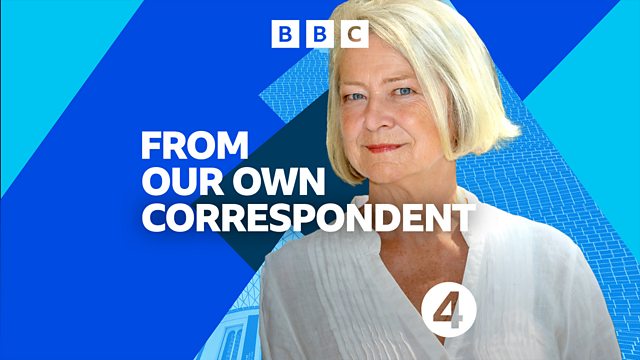03/06/2010
Kate Adie introduces correspondents' reports from Israel, Afghanistan, Ethiopia and Zambia - while from the US we hear about how best to get a car to speak.
Israel remains defiant but it's losing important friends; why the gains in women's rights in Afghanistan could be threatened by peace; the skill of forgiving and forgetting Zambian style; and building a lasting relationship with your real buddy...the car.
As we've heard this morning, hundreds of activists, detained after being in the convoy raided by Israeli commandos, have reached Turkey.
The Turkish deputy prime minister has accused Israel of piracy. Turkey was one of Israel's few allies in the Middle East.
Despite condemnation around the world for its action, Israel has said it will continue to intercept boats to prevent arms being smuggled to Gaza. The Israeli Prime Minister, Benjamin Netanyahu, has accused foreign critics of the raid of hypocrisy.
As Wyre Davies reports this latest episode is another sign that Israel is increasingly friendless.....
More than a thousand delegates are taking part in a three-day reconciliation meeting in Kabul.
This year's Loya Jirga didn't start well, when militants attacked the venue as President Hamid Karzai gave his opening address.
The main aim of the national gathering is to build a consensus on possible reconciliation with elements of the Taleban.
In a sign of the changes that have happened in recent years in Afghanistan, women are present. But, as Martin Patience explains, there are worries that the small gains made by Afghan women could be lost in the quest for peace.
Ethiopia's President Meles Zenawi is celebrating a landslide election victory. It's the fourth win in a row for his party.
But few outsiders are praising Ethiopia's democratic credentials. American and European observers say these latest national elections failed to meet international standards.
And human rights groups say the country is becoming increasingly oppressive. They question whether Ethiopia should be such a favourite for international donors. More British aid money goes to Ethiopia than to any other country in Africa.
Will Ross was in Ethiopia for the elections.
We all know what they say about sorry being the hardest word.....And often it is difficult to apologise for our misdemeanours, though we're quick to expect others to seek our forgiveness. That's true too for politicians. Though there is one nation that seems to have succeeded in embracing the maxim "to forgive and to forget," as Jo Fidgin found in Zambia's capital Lusaka.
Few of us appreciate back-seat drivers, but more and more of us are now relying on voices in our cars to tell us what to do. Sat-navs have replaced maps.....and you can choose which character you'd like to hear.
New cars are crammed with sensors and computer technology, all too-willing to give us advice or instructions. But what kind of voice will make you listen?
As Steven Evans has been finding out, that's something that has been exercising the car industry.
Last on
Chapters
-
Introduction
Duration: 00:34
Israel strains international relations
Wyre Davies observes how Israel is appearing to lose some important friends in the international community.
Duration: 06:56
Afghan women's invisible struggle for rights
In Kabul, Martin Patience reports on concerns that small gains in women's rights since the days of the Taliban may be lost.
Duration: 05:10
Ethiopia poll sparks worries for democracy
Following Ethiopia's recent election, Will Ross says there are increasing concerns about political oppression in the country.
Duration: 05:10
Smile and be a little more Zambian
Smile and be a little more Zambian
Duration: 04:40
Building a relationship with your car
Stephen Evans finds out how scientists at Stanford University are attempting to turn the car into a friend for life.
Duration: 05:20
Broadcast
- Thu 3 Jun 2010 11:00Βι¶ΉΤΌΕΔ Radio 4

